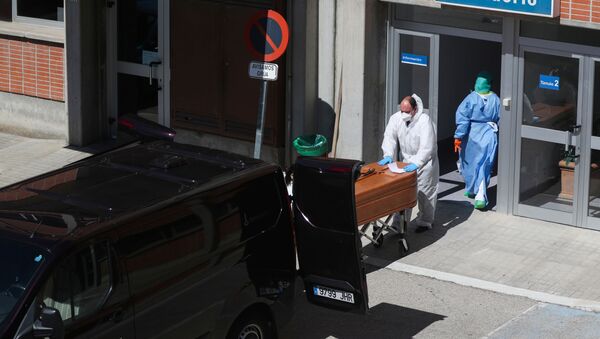“According to our best knowledge, this is the first report on COVID-19 infection and death among medical personnel in a Forensic Medicine unit,” reads the study, which was published in the Journal of Forensic and Legal Medicine by Won Sriwijitalai of the RVT Medical Center in Bangkok and Viroj Wiwanitkit of China’s Hainan Medical University.
“The disinfection procedure used in operation rooms might be applied in pathology/forensic units too. At present, there is no data on the exact number of COVID-19 contaminated corpses since it is not a routine practice to examine for COVID-19 in dead bodies in Thailand,” the authors recommend.
The report also notes that there are only two COVID-19 patients in Thailand who are medical personnel, one of them being the forensic medicine professional referenced in the study and the other being a nurse assistant.
Currently, there is very little information about how long the coronavirus can survive in dead bodies, and various diseases pose different risks. For example, there is some evidence that Ebola, a virus that causes severe bleeding and organ failure, can live in corpses for up to seven days.
According to the World Health Organization (WHO), “workers who routinely handle corpses may however risk contracting tuberculosis, bloodborne viruses (eg hepatitis B and C and HIV) and gastrointestinal infections (e.g. cholera, E. coli, hepatitis A, rotavirus diarrhoea, salmonellosis, shigellosis and typhoid/paratyphoid fevers).” However, apart from those cases, the WHO notes, “Contrary to common belief, there is no evidence that corpses pose a risk of epidemic disease after a natural disaster. Most agents do not survive long in the human body after death.”
The US Centers for Disease Control and Prevention (CDC) outlines on its website that it is still learning how COVID-19 spreads.
“People should consider not touching the body of someone who has died of COVID-19,” the agency says.
Despite the conflicting reports, health policy expert Summer Johnson McGee of the University of New Haven recommends that anyone coming in contact with a COVID-19-positive body take measures to prevent infection.
“Anyone coming into contact with a COVID-19 positive body, alive or dead, should be using personal protective equipment to prevent exposure … Autopsies and subsequent investigations present real risks for coroners to acquire COVID-19,” McGee explained, BuzzFeed News reported Monday.
Despite being one of the first countries in which COVID-19 infections appeared, Thailand has only confirmed 2,613 coronavirus cases and 41 related deaths, according to the latest data by Worldometer. Worldwide, there are almost 2 million cases of the disease, and more than 125,000 people have died because of it.



